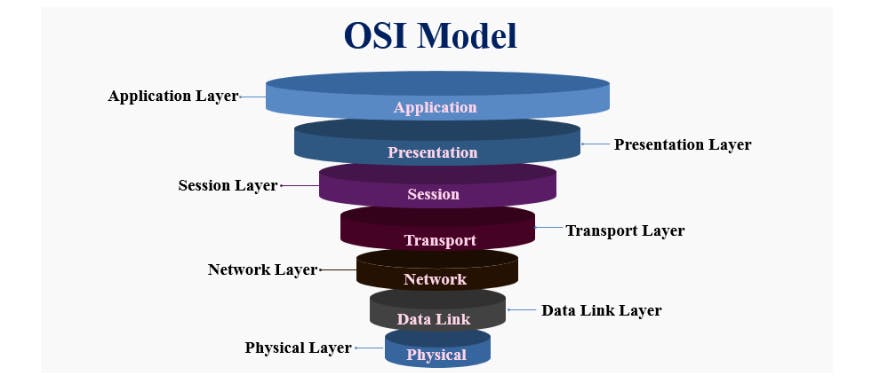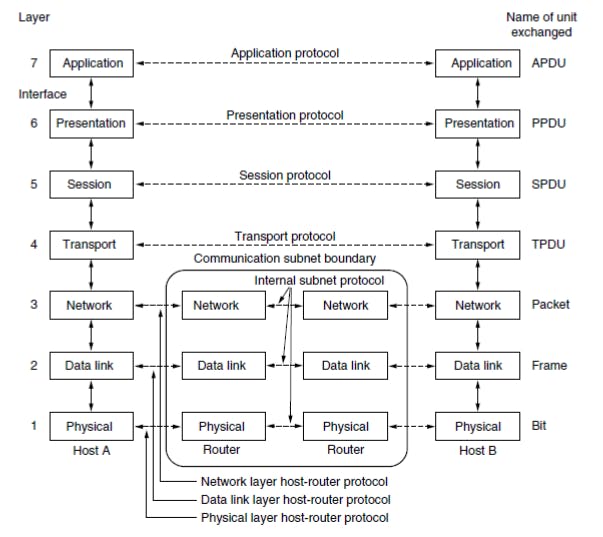OSI Reference model :

7 layer of OSI model :
Physical layer
The physical layer is concerned with transmitting raw bits over a communication channel.
Data Link Layer
The main task of the data link layer is to transform a raw transmission facility into a line that appears free of undetected transmission errors. It does so by masking the real errors so the network layer does not see them. It accomplishes this task by having the sender break up the input data into data frames and transmit the frames sequentially.
The Network Layer
The network layer controls the operation of the subnet. A key design issue is determining how packets are routed from source to destination.
Transport Layer
The basic function of the transport layer is to accept data from above it, split it up into smaller units if need be, pass these to the network layer, and ensure that the pieces all arrive correctly at the other end. Furthermore, all this must be done efficiently and in a way that isolates the upper layers from the inevitable changes in the hardware technology over the course of time.
session layer
The session layer allows users on different machines to establish sessions between them. Sessions offer various services, including dialog control (keeping track of whose turn it is to transmit), token management (preventing two parties from attempting the same critical operation simultaneously), and synchronization.
Presentation Layer
Unlike the lower layers, which are mostly concerned with moving bits around the presentation layer is concerned with the syntax and semantics of the information transmitted
Application Layer
The application layer contains a variety of protocols that are commonly needed by users. One widely used application protocol is HTTP (Hyper Text Transfer Protocol), which is the basis for the World Wide Web. When a browser wants a Web page, it sends the name of the page it wants to the server hosting the page using HTTP.


